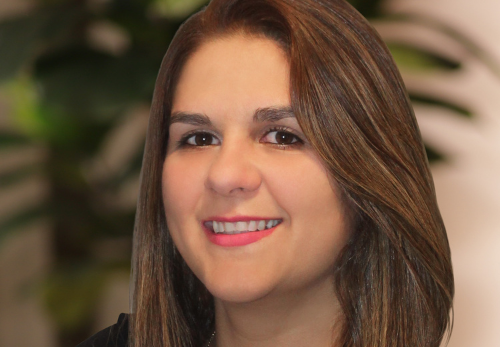Welcome to another edition of IntelePeer’s Tech Tuesday series. This week Juniedi Garcia, QA Engineer, walks us through her journey into the industry, her hopes for the future of AI, and her three life principles.
1. How did you end up in the Tech Industry?
I was passionate about sciences but not a major fan of technology in high school. I was looking for a career where logic and math played a significant role. I decided to follow the advice of my family and the common expression that “IT is going to be highly relevant in the future.” I ended up in the field of Software Development. After some time interacting with the software principles, life cycle, and checking how technologies impact and improve the human life, I fell in love with it.
I have been working in the IT Industry for a few years and have worked on several projects including banking, healthcare, communications, eGovernment, and education systems, it is always exciting to deliver a new product or service that solves a concern, replaces a manual process, or helps follow a better and healthier lifestyle.
Every day is a challenge in the Tech Industry because there are frequent updates and changes in the technologies. That makes this career a continuous learning process.
2. What AI or machine learning capabilities are you most looking forward to?
Millions of Americans pass away or get permanently injured every year in car accidents, and Florida is a state with higher rates nationwide. Self-driving and real-time risk assessment are some AI applications that can help drivers avoid potential emergency situations. There are well-known features like forward collision, blind spot, and lane departure warnings. More advanced features include stop-and-go adaptive cruise control, automated lane-centering, automated lane changes, or autopilot on all roads. Unfortunately, they are only available with some models.
I look forward to seeing what new features can be developed in the future and hope that the technology can be widely available in more mainstream models. Those features do not replace the responsibility of a driver but are definitely going to improve the safety on the roads.
3. What was the most challenging aspect of your career, and how did you overcome it?
After some years of working as a part of software development teams, acquiring a Master’s degree, and completing multiple post-graduate courses and trainings, I was promoted to the position of Project Manager. I had to lead a high-impact and complex project with a large team. Most of the team members were highly skilled professionals, academic leaders in their knowledge areas, and some of them were my professors during college. Assigning and managing the tasks, reviewing the results, and providing feedback was a big challenge.
To overcome this challenge, I worked and studied intensely to prove that – while being younger and having less experience – I could support the team, achieve the expected results, and deliver success. In short time, I got respect and trust from my team. In that project, I learned three critical lessons that eventually became principles of my life. Be humble and learn from others, be respectful and polite while listening to the team criteria and feedback, and improve yourself regularly.
4. Any advice for women who want to join the tech industry?
Always remain positively curious and ask for everything. Always be ready to change, as there is something new every day in the technology industry. New technologies, tools, methodologies, and processes emerge continuously. Therefore, be sure to keep yourself updated. Enjoy learning – fun is guaranteed.
5. What advice would you give your younger self who is just starting in the workforce?
Always do your best job. Learn from every experience, job, and team member.
Bonus: Who is your tech role model or what podcast(s) are you currently listening to?
I am listening to a podcast from an empowered Hispanic woman. Estamos Juntas (We Are Together) is a space where empowered women share their experiences and motivations.
